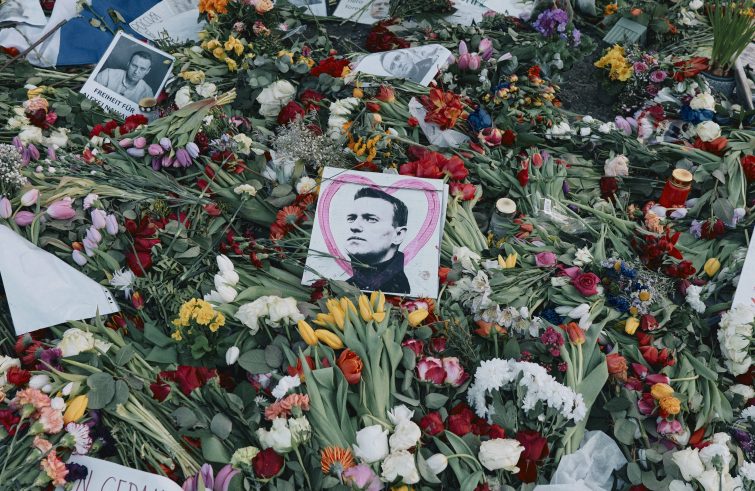
Alexei Navalny’s body will finally rest in peace: if there are no further obstacles, the funeral will take place tomorrow, 1 March, at 2 p.m. in the Church of the Icon of the Mother of God “Relieve My Sorrows” in the south-eastern Moscow district of Maryino, where the political opponent killed on 16 February once lived. He will be buried in the Borisov cemetery. The family had hoped to pay their last respects today, 29 February, but this was not possible: “no one was willing to dig a grave”, ironically reported the “dissident” social platforms, because today is the day when Vladimir Putin is due to address the Federal Assembly.
In Russia and across the border, news of the funeral, long overdue and expected for days, spread like wildfire.
On the many opposition Telegram channels we are all familiar with by now – Novaya Gazeta, Meduza, Ovd-Info, Exo, Radio Svaboda – the news of the funeral is accompanied by a chilling warning: “If something happens and you are arrested, write or call…”, followed by a list of telephone numbers. If the mere laying of a flower after Navalny’s death led to the arrest of 400 people, attending the funeral of Putin’s political opponent is bound to be an act of courage, as Navalny’s widow, Yulia Navalnaya, noted in her address to MEPs in Strasbourg.
In fact, the acts of courage reported by these media outlets over the course of many months and years are endless.
They show the faces and tell the stories of ordinary people taking a rebellious stand. Or perhaps simply expressing a thought that has become problematic in the Federation today. Eighteen-year-old Daria Kozyreva, a first-year medical student in St Petersburg, is one of the latest voices of the protest. Her pimpled face reveals an age full of vitality and dreams, but she faces five years in prison for “repeatedly discrediting the Russian army”. Arrested on 24 February, she will be detained in a remand centre until 25 April, awaiting pre-trial investigation. She was arrested on 15 December in front of the monument dedicated to the poet Taras Shevchenko. She was armed with the Ukrainian poet’s poem ‘The Testament’, which reads: “Oh bury me, then rise up and break your heavy chains. And water with the blood of tyrants the freedom you have won”.
Dreaming of freedom is becoming increasingly difficult for other political opponents, such as Vladimir Kara Murza.
The Russian activist, politician and filmmaker remains imprisoned in the Ik-7 penal colony in Oms, sentenced to 25 years on charges of espionage and spreading false information about the armed forces. He could be the next opponent of Putin to be executed, after Navalny, Anna Politovskaya and Boris Nemtsov, whose killing marked the ninth anniversary on 27 February. Ironically, on the same day a Moscow court sentenced human rights activist Oleg Orlov to two and a half years in prison for repeatedly denigrating the armed forces. “If we give in to despondency and despair, that’s exactly what they need,” wrote Kara Murza in the hours immediately following Navalny’s murder. In an article published yesterday in the newspaper Exo, Kara Murza wrote that if she could vote on 17 March, she would “cross out all four options and write Navalny on my ballot paper.”
Kara Murza hopes that many people will do the same, “including my daughter, who will be turning 18 at the beginning of March”.
In this way, “the name that people are forbidden to mention in life and in death, and which the old usurper is so superstitiously afraid of, will be heard loudly throughout thousands of polling stations in our country”. From prison, the opponent calls on citizens to go to the polling stations and form “living queues of conscientious people, free citizens in an unfree country. Let us show them how many we are. Show them that we are not afraid. And that no bullet, no poison, no prison can stop the future.
In Strasbourg, Yulia Navalnaya had specifically praised the Russian citizens who oppose Putin and his cruel regime.
“In this fight” for freedom, democracy, rights, “you have reliable allies – there are tens of millions of Russians who are against Putin, against the war, against the evil he brings. We must work with them.”











